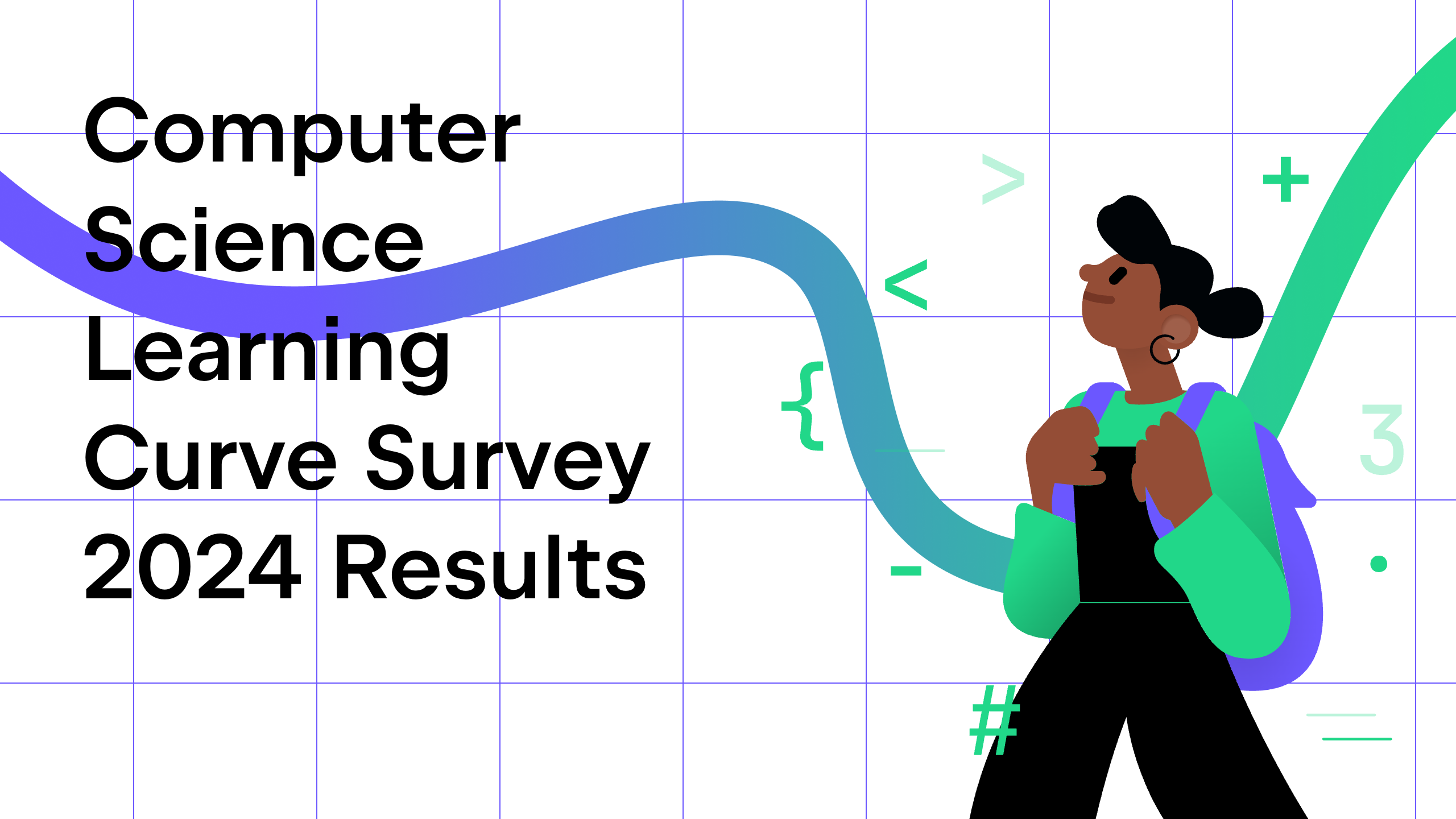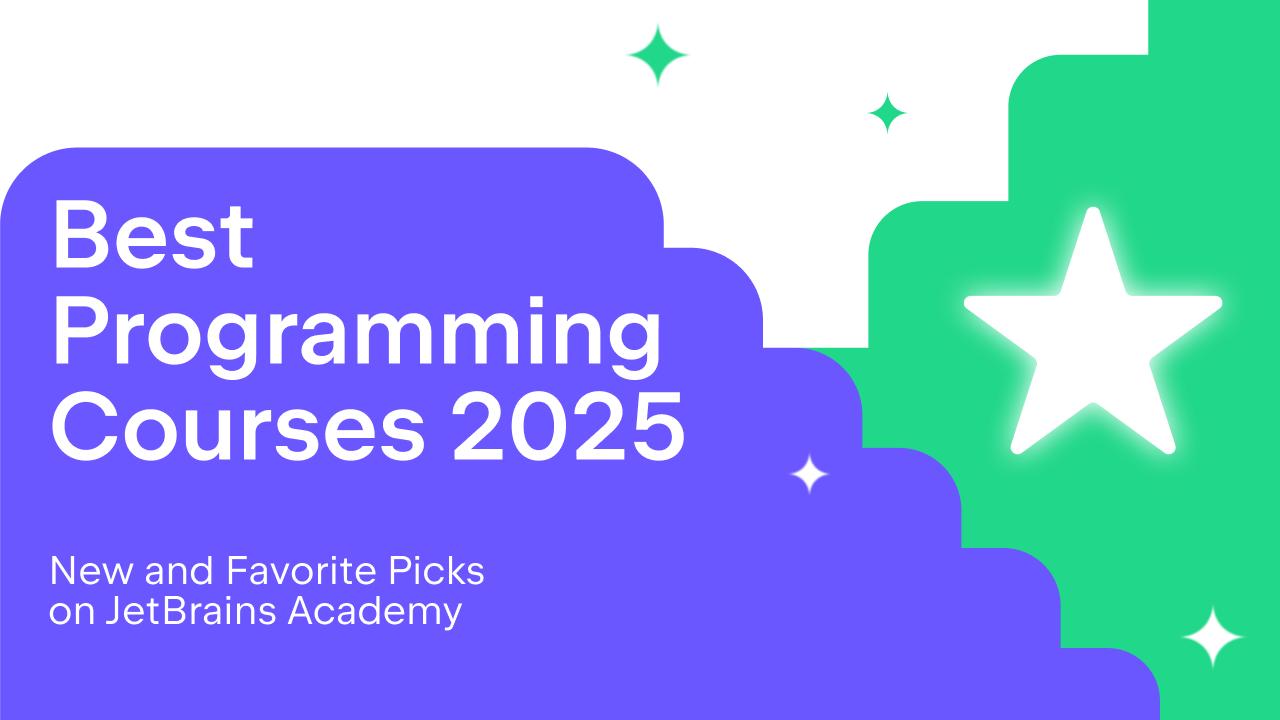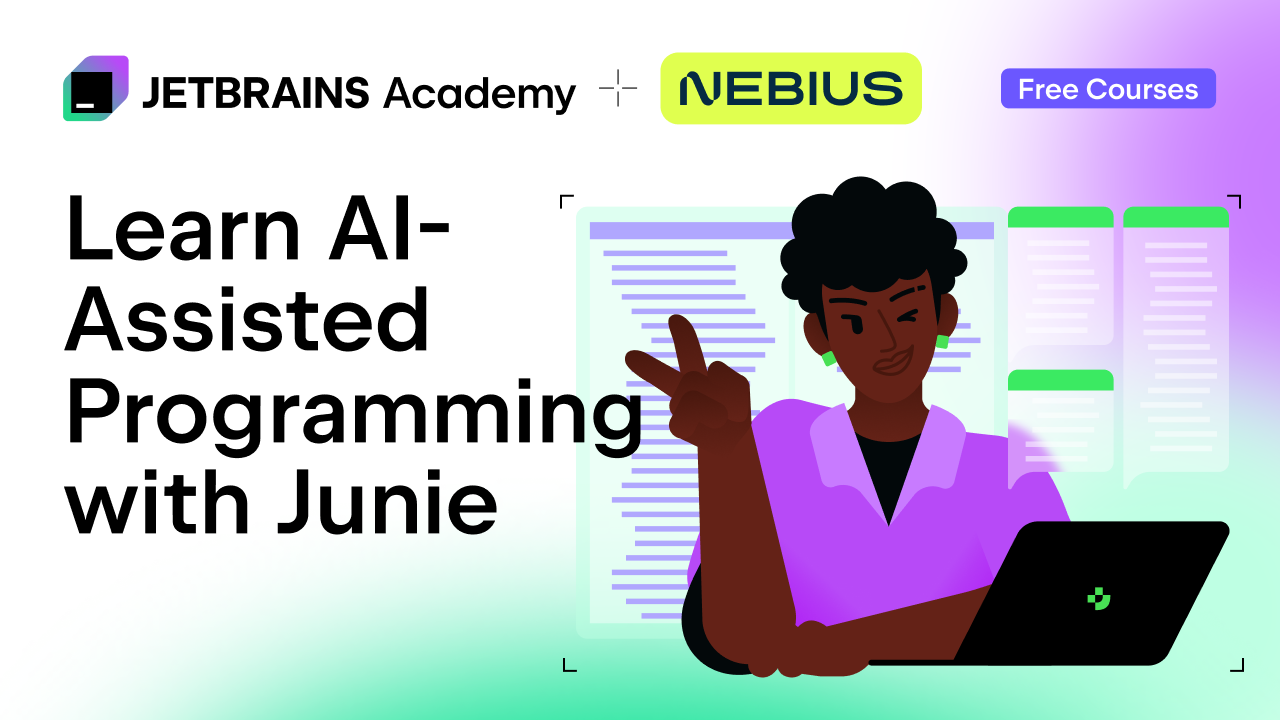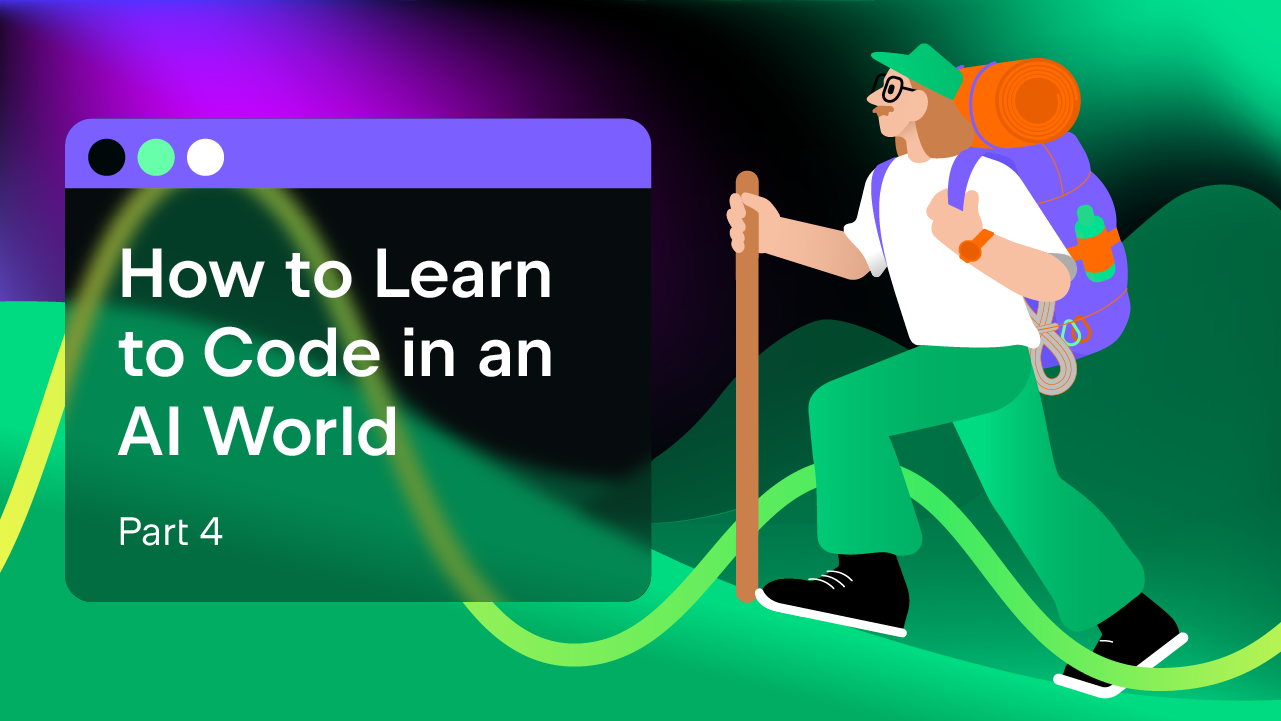JetBrains Academy
The place for learning and teaching computer science your way
AI Inspires Learners, IDEs Drive Them: Computer Science Education Trends 2024

Computer science education and literacy are skyrocketing in demand worldwide. To understand the latest trends, challenges, and motivations driving learners, as well as other factors shaping the field, we conducted the 2024 Computer Science Learning Curve Survey. More than 23,991 learners from 16 countries and seven broader regions completed our detailed questionnaire – equivalent to over a year of collective effort. Dive in to discover what we’ve learned!
Artificial Intelligence (AI) is a magnet for new computer science learners
While programming, algorithms, and databases may still dominate the curriculum, AI sparks fresh interest in computer science. Nearly 28% of learners plan to dive into AI for their next course, while 33%–34% are already exploring it – including 18% who are taking their very first steps in computer science.
AI is democratizing computer science education
AI-powered translation tools for learning are especially popular in regions with diverse or non-English speaking populations (Northern Eurasia, Turkey, Asia, Latin America).
Integrated development environments (IDEs) reign supreme, even for beginners
Contrary to the belief that beginners prefer simpler tools, 46% of learners wrote their first line of code in an IDE – outpacing text editors (28%) and browser-based editors (11%). IDE users report fewer challenges, less isolation, and lower rates of imposter syndrome, feeling better equipped to keep pace with the rapid evolution of technology without becoming overwhelmed.
Quality assurance (QA) roles are an undervalued entry point
Despite being a potential entry point into tech, QA/Tester remains generally less sought-after than other tech roles. However, it stands out, alongside user interface (UI) and user experience (UX) designer (16%) and business analyst (14%), as a role with higher-than-average female representation in the industry.
Computer science is about passion and creativity, not just paychecks
Passion fuels tech learners much like it does artists or musicians. Nearly half (46%) enter computer science to tackle challenges, automate processes, or turn a hobby into a career. The drive to create – whether crafting games, websites, or innovative solutions – surpasses practical motivators like salary (41%) or remote work flexibility (34%).
Hands-on projects trump all
A whopping 76% of learners consider hands-on projects the most important aspect of educational courses, far outweighing other factors like structured curriculum or clear learning objectives.
Women prioritize flexibility and support
Female learners value time flexibility, remote learning options, technical support, and accessible study spaces more than their male counterparts.
Productivity-boosting strategies have regional quirks
Getting enough sleep is the second most popular productivity booster globally, but Germans prioritize listening to music over it. North and South Americans embrace pet time – a tactic almost unheard of in Nigeria, China, South Korea, and the Middle East.
Career switching is a rising trend
The stereotypical image of a young, single male computer science learner under 30, balancing late-night coding with a software engineering day job still holds true – particularly in India and China. However, an increasing number of learners aged 30 and above are breaking the mold, transitioning into tech from diverse fields, from engineering and finance to healthcare and creative arts.
Share, discuss and collaborate with us
We’re excited to collaborate with professionals from diverse fields – whether you’re an educator, developer, or researcher – for projects like hackathons, research initiatives, and more. Reach out to us at academy@jetbrains.com to get involved.
Share your thoughts on the survey results on social media using #JetBrainsAcademySurvey24.
Your JetBrains Academy team
Subscribe to JetBrains Academy updates








